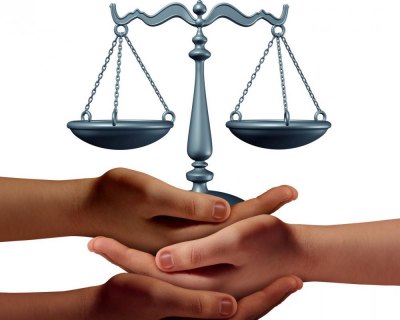Candidates haggle over citizenship question

If you were born in the U.S., are you a citizen? Candidates sparred over the 14th Amendment to the Constitution.
"Well, first of all, the - the 14th Amendment says very, very clearly to a lot of great legal scholars - not television scholars, but legal scholars - that it is wrong," he said. "It can be corrected with an act of Congress, probably doesn't even need that."
A woman gets pregnant, Trump went on. “She’s nine months, she walks across the border, she has the baby in the United States, and we take care of the baby for 85 years. I don’t think so.”
For years, immigration reform has been a divisive issue. The children of illegal immigrants are sometimes called "anchor babies," because they are considered citizens even though their parents are not. The 14th Amendment to the Constitution says this about citizenship:
“All persons born or naturalized in the United States, and subject to the jurisdiction thereof, are citizens of the United States and of the state wherein they reside. No state shall make or enforce any law which shall abridge the privileges or immunities of citizens of the United States; nor shall any state deprive any person of life, liberty, or property, without due process of law; nor deny to any person within its jurisdiction the equal protection of the laws.”
That last phrase, “equal protection of the laws,” has been an important one in the courts, according to the Legal Information Institute at Cornell University. The term figures prominently in landmark cases about school desegregation, abortion rights and gender discrimination.
The amendment was ratified July 9, 1868, and at the time, the key issue was the citizenship of recently freed slaves. The primary author of the first section was Rep. John A. Bingham of Ohio, who “intended that the amendment also nationalize the Federal Bill of Rights by making it binding upon the states,” according to the National Archives website, OurDocuments.gov.
During the recent Republican debate, candidates discussing ways to control illegal immigration haggled over what they could do about the amendment. Candidate Carly Fiorina pointed out, “The truth is, you can't just wave your hands and say ‘the 14th Amendment is gonna go away.’ It will take an extremely arduous vote in Congress, followed by two-thirds of the states, and if that doesn't work to amend the Constitution, then it is a long, arduous process in court.”
Sen. Rand Paul, R-Ky., explained that a previous legal case from the turn of the last century involved people who had green cards, “were here legally, and they said that their children were citizens.”
Paul was likely referring to the 1898 case: United States v. Wong Kim Ark, which involved the son of Chinese immigrants legally in the country.
“There's never been a direct Supreme Court case on people who were here illegally, whether or not their kids are citizens,” Paul said. “So it hasn't really been completely adjudicated. The 14th Amendment says that 'those who are here and under the jurisdiction.' The original author of the - of the 14th Amendment said on the Senate floor that this was applying to slaves, and did not specifically apply to others.”
Sources:
- CNN, Reagan Library Debate, Sept. 16: Transcript.
- Cornell University Law School, Legal Information Institute: 14th Amendment
- Cornell University Law School, Legal Information Institute: United States v Wong Kim Ark.
- Library of Congress: The 14th Amendment.
- OurDocuments.gov: 14th Amendment.
If you would like to comment, contact us or like us on Facebook and tell us what you think.
Related:

